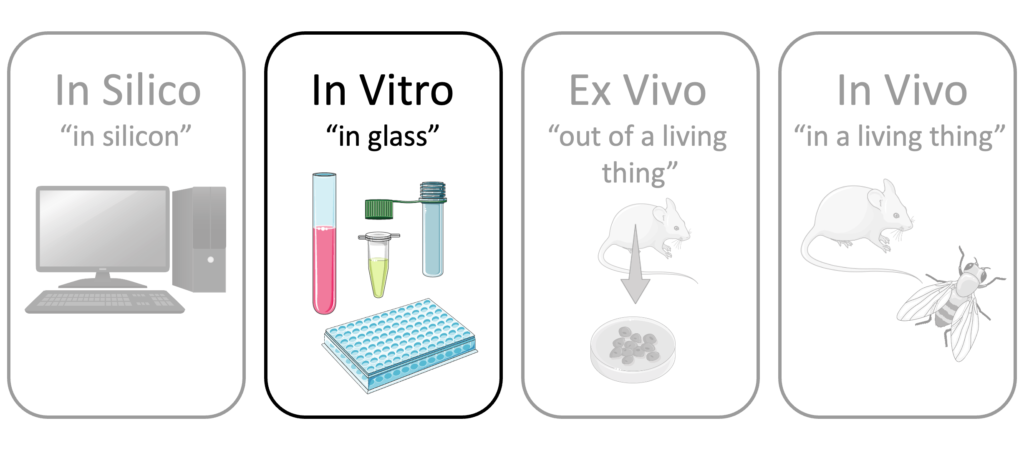(Adjective. /in VEE-troh/)
by Anna Wheless
What does it mean?
The term “in vitro” describes a biological experiment or process that takes place outside of a living organism or life-like system. A scientist may perform an experiment in vitro to examine a very specific process without the added complexity (and cost) of using a living system. See below a list of some pros and cons of in vitro testing compared with other methods.
Advantages
- lower cost
- certainty of all experiment components
Disadvantages
- some molecules and cells are not stable or viable once removed from the body
- the experimental conditions are not lifelike, so the results may not apply to real organisms
How do I use it in a sentence?
She studied the properties of an enzyme in vitro by mixing the enzyme and its substrate together in a series of tubes containing various biochemical conditions.

Image made by author using art from Servier.
Etymology
“In vitro” is Latin for “in glass.” When this term was invented, science relied heavily on glassware to contain experiments in the laboratory. Modern labs still use glass, but plastic is also very common. When an experiment or process is conducted in a non-glass container, we still use the term “in vitro.”
Fields of study in which this word is commonly used:
Biology
Biochemistry
Biophysics
Pharmacology
